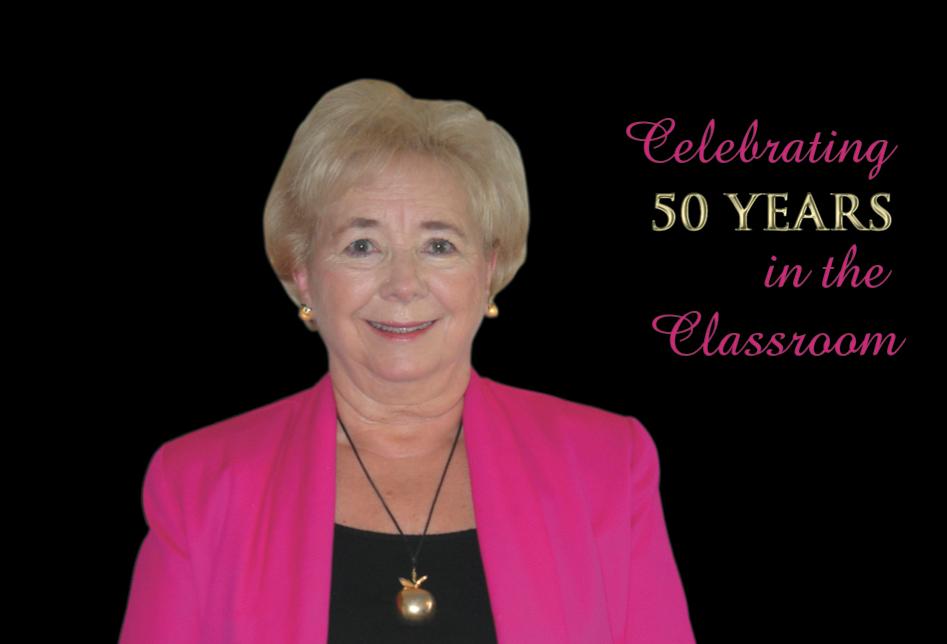Pat Kozyra, author of the book “Tips and Tidbits for Parents and Teachers,” answers selected questions from parents.
Parent: We are thinking of putting our child into a French Immersion School. What is important to consider before making the decision?
Teacher Pat: Schools like French Immersion Schools are a wonderful opportunity for your child to become fully absorbed in a popular foreign language and to really excel. However, these kinds of schools are not for all children. This experience might be a negative one for the child if you as the parent notice one, two or even a cluster of the following:
1. Your child has a severe learning disability
2. Your child has definite speech and language problems
3. Your child is a slow learner
4. Your child is not at all interested and dislikes learning the language and was not given a choice
5. Your child has a severe behavior problem or an attention deficit problem
6. Your child is already exposed to and expected to use and learn other languages both at home and at school
7. Your child has a serious hearing problem
8. Your child has dyslexia and/or major reversal problems and is confused by a language reads from another direction.
This being said, some very bright children can handle two, three or more languages with no problem at all. However, what the parents must be concerned about is, if the child ends up in a learning center needing much special help or becomes very stressed or depressed or has behavioral problems as a result of being forced to handle something they just can’t. Parents please be careful and choose your school and your program for your child wisely. It must meet your child’s needs.
Parent: How much should I help my son who is six years old with his homework?
Teacher Pat: A six-year-old still needs parental guidance but at the same time you want your child to get into the homework routine on his own too. Make sure he knows where and when to do this, and that he has all the materials necessary along with good lighting and no distractions around. Try not to readily tell him the answers as this gives the teacher a false sense of what he can do and he might give up trying on his own. Feeling some frustration can be good for him.
Try not to be an overindulgent parent or a helicopter parent hovering over every aspect of his work. Walk away from the scene and check in a few minutes to see how he is doing. If his attention span is short put a kitchen timer on and promise a reward when it goes off like a healthy snack. Reading should be part of the homework so by all means help him with the difficult sight words or to sound out the phonetic words. Use a marker card under each line if he is skipping lines. Ask “how” and “why” questions during and after the story for comprehension and creativity.
If it is Math, use concrete aids like beans or pennies to help count, or just draw circles and cross them off. Leave his wrong answers so the teacher can see and help him review the answers as well the next day. He should know the answers because you explained it to him the night before. Repetition is good and key to getting information into long term storage.
Parent: My daughter in nursery school does not readily participate in activities in the classroom and all the other children seem to be having so much fun. Should I be worried that she only watches but does seem to enjoy doing that?
Teacher Pat: Do NOT worry! Teachers often encounter children who want only to watch from the sidelines. This is called “the onlooker stage of play”. It is actually a very important step in the social development of young children. They are mentally practicing interfacing with others and they do benefit from this thoughtful time. Even though children who just watch don’t physically interact, their minds and feelings are fully engaged in the play of others.
You yourself attest to the fact that you can see it in her face and body language and she has the attention span to stay with the activity by just watching. So children who go through the onlooker stage or watcher stage get to be mentally engaged without the potential intimidation of being in the thick of things. They are storing it all for future use. When the time is right your daughter will feel more comfortable and successful moving into the world of full social interaction.
Parent: I have noticed lately that my child is displaying some regular, annoying, physical habits lately with his hands and face. I even hear some odd sounds at times. How do I break him of this behavior?
Teacher Pat: I applaud you for being an observant parent. These random repeated gestures or movements are called “tics” and no, you cannot change what is happening. Your child is not doing this on purpose or for attention. It is a condition of the central nervous system. These can be precursors to Tourette Syndrome so should be monitored carefully. It usually starts around age seven with boys having them more than girls. Your child has no control over them so do NOT tell him to stop. The main reasons experts give are stress and/or heredity.
You may want to discuss this with your child and explain that it is not his fault and he is not to blame and that they will probably go away in time. There is no cure for this syndrome although some antidepressant medicines have been helpful. The symptoms can be mild, moderate and severe. There can be both motor tics and vocal tics. It is wise to let your family doctor know. There is much information available both on the web and in bookstores today. I tutor students, and I have noticed over the years more and more students displaying tics now. Are students too stressed in Hong Kong?
Parent: We have just moved to Hong Kong and will be interviewing a helper soon. What advice can you give us for finding the right fit for our family?
Teacher Pat: Helpers are, without a doubt, a necessary and integral part of Hong Kong living. The role of the helper can be a very demanding and difficult one. Both parents should agree on what they expect from their helper before the interview happens and both should be there at the interview. Will she only clean and cook? Will she only look after the children? Is she expected to drive the car? Is she expected to take part in the homework sessions and monitor their school work? So many factors can come into play that can impact a successful relationship between a helper and a family: language and speaking ability, personality, age, experience, knowledge, education, and the desire and willingness to do what is expected of her.
Parents should:
- Set clear definitions of what constitutes misbehavior so that children receives consistent messages.
- Remember that good communication amongst all the household members is very important
- Provide guidelines and limitations on discipline (not punishment)
- Ask helpers to report misconduct and inappropriate behavior, including disrespect
- Know that their own attitude towards the helper is reflected by the children
- Spend quality time consistently with their children
- Spend time to teach, practice and show the helper what they want her to do and how to do it
- Not expect the helper to do things they are not capable of
- Remember that there is NO substitute for parents when it comes to teaching and supervising.
- Make sure their children are not demanding, bribing, yelling at, or even physically abusing the helper or in turn being indulged or spoiled by the helper when she gives into the child to avoid upsetting the child or the parents.
- Make sure their helpers help them to foster independence in the child and not do all the things a child is perfectly capable of doing for himself like carrying the backpack or making the bed, making their own school lunch, or feeding the pet.
Parent: My son is in his teens now and we are wondering if it is too late to enforce our expectations on him as we are not happy about some of his behavior, attitudes and actions.
Teacher Pat: I am also a mother, and I have been in your shoes with raising my own teenagers – not easy and some say as difficult as nailing jello to a tree! The answer to your question depends a lot on your family dynamics, your son’s personality what values were instilled at an early age. I always felt that if my kids did not know my expectations and live by them by age of 12, I pretty much lost them in terms of trying to change them and their ways. That being said, it is never too late to expect and insist on appropriate behavior which includes good social skills, proper manners, correct etiquette and respect for elders. Much of this comes from good role modeling from you, his parents.
Sometimes we have to just remember to compromise, to be flexible, and remember that “this too shall pass” in many cases. Some things are just not worth the grief and stress we put ourselves through to insist that they do things exactly our way, like the weird hair styles and the tattoos. Ask yourself if what your son is doing is life threatening, against the law, breaks school rules , or is immoral. If the answer is yes then by all means, you must step in and remember that you are the parent not your son’s friend. Your son lives under your roof so you must take charge and take action to fix or change what is happening. This may even mean professional assistance and guidance at this stage. Both parents must be on the same page. That is crucial. Continue to surround your son with positive tools, such as good books, movies, TV programs and above all, do monitor the use of the computer, the electronic gadgets and the phone use. This can even have a serious impact on his sleeping habits. Best wishes!
Parent: We want our daughter to have a good interview at the school we are applying for. Can you give some suggestions for preparing her? She is in Grade Four.
Teacher Pat: I cannot predict what the interview questions will be as each school is different, but there are some basic things that I would suggest and even practice. Teach her a proper hand shake. Practice speaking in complete sentences and use good eye contact the whole time and remember good manner words. Help her to research information about the new school so that she can answer questions about why she would like to attend e.g. extra-curricular activities, the uniform, whether or not it is co-ed, the programs offered and the good things she has heard about it. She may be asked questions about her family, her holiday experiences, her favorite subject, her favorite books, what she wants to be someday, her best birthday memory, or about her friends and what they mean to her.
She can practice good voice volume and projection. It is important to go to the interview well rested, happy and smiling, free from stress and anxiety, and well-dressed and groomed. Some schools might even ask for a portfolio to be brought in with samples of her work, and pictures of her extra-curricular activities and/or talents. Some schools might focus on a writing exercise during the interview because so much can be learned from it—spelling, grammar, handwriting, creativity, divergent thinking, comprehension and work pace. Hope these are helpful suggestions and that your daughter has a successful interview—Best Wishes.
Parent: My husband and I are about to get divorced and we have not yet told our two children. Can you give us some advice as to how we should handle this difficult step?
Teacher Pat: Divorce can be stressful for children at any age. Although both of you must be experiencing some reactions to the stress already, both of you must try very hard to make it as painless as possible for your children. I don’t know how old they are but divorce can evoke sadness, anger, confusion, and a feeling of instability along with emotional stress at any age.
Both of you must reassure your children that you love them and that they are not to blame for this in any way and they should not blame themselves for it. Both of you should agree ahead of time and be on the same page as to how you will answer their many questions. Keep in mind that children do not want to hear all the details or be caught in the middle, so do not burden them with those details. You should not look to your children for support. You should get this from your friends, the clergy or professionals.
When breaking the news both parents should be there together. Some questions might be where they will live, where you will live, what school they will go to, how much they will see you and when, whether you might get back together again, why it happened and why they did not know beforehand that something was wrong. You must both be careful not to lay blame each other verbally in front of your children, not to vent negative feelings about your spouse to your children, and show a united front for your children at parent interviews, school concerts, and sporting events. Not doing this can even embarrass them in front of their teachers and peers. They want you to be friendly to each other in these situations.
Do not hesitate to get counseling for your children if you notice the following: sleep problems, behavior problems, concentration problems, eating disorders, angry or violent outbursts, drug and alcohol problems, or any negative changes that are not the norm.
There are many books for children on the subject of divorce and much information you can read on the websites for yourself. Being informed and knowledgeable may prevent future problems or help you to be ready for them. Best wishes to both of your and may your children have the stamina and resilience to come through this as well as can be expected.
Parent: My husband and I are new to Hong Kong and we are shocked that most of our son’s friends are never available for playdates, as they are all having special tutoring lessons. Are we missing the boat here? How important is this for school success?
Teacher Pat: Many children are receiving tutoring and perhaps that should read “too much tutoring”. Some children have 12 to 15 sessions a week and many more in the summer. The bar is very high for academic success and it is getting very competitive. Many parents say their children are struggling with learning Chinese and Math as these are popular subjects for tutoring besides the English. If your child is having serious difficulties I would suggest having a professional assess him/her to see what the specific problem is so that if tutoring is required, you are paying to have those specific weaknesses remediated—zero in on the problem!
Therefore, it is imperative that parents find a well-qualified tutor who has the proper experience and who is not charging an exorbitant price for very little progress made. Parents should ask themselves the following questions before sending the child off to “umpteen” tutors.
1. Is my child getting the proper rest and sleep each day? Is the school giving too much homework?
2. Is my child falling asleep at the tutoring sessions? Is he/she upset or crying or not focusing or concentrating at tutoring lessons?
3. Is my child getting enough time for playdates, down time and relaxation and fun?
4. Does my child have good eye-sight and hearing? Maybe that is the problem? (yearly check-ups?)
5. Is my child in the right kind of school to meet his/her needs—maybe that is why the progress is not evident.
6. Is my child happy to be going to the tutor? Is there some fun aspect or incentive during the lesson?
7. Is there enough time for my child to read for pleasure, or to be read to each day?
8. Is there time to play family games or watch some educational shows on TV or just have discussions together?
9. Does my child complain about all the extra-curricular activities plus the tutoring?
10. Is there too much homework given from the tutoring session?
If most of your answers to these questions are negative ones, then parents should think twice about the value of so much tutoring.
Canadian citizen Pat Kozyra, currently living in Hong Kong, has 50 years of classroom experience and is the author of “Tips and Tidbits for Parents and Teachers.”





